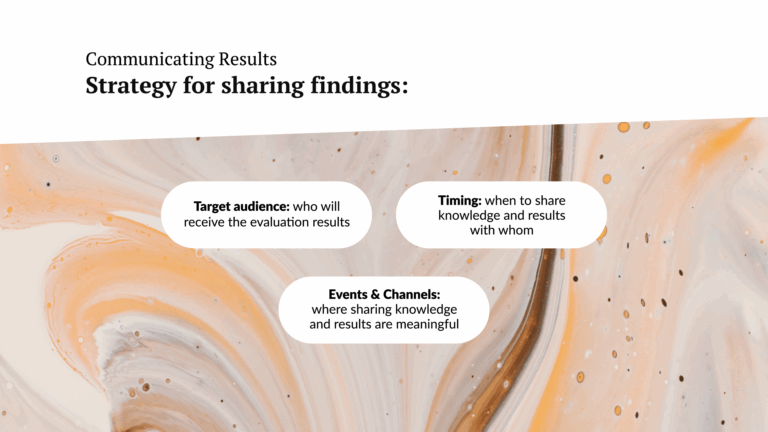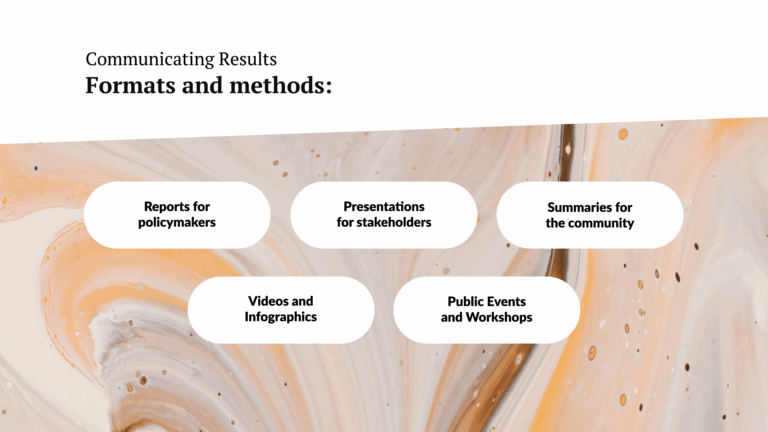Sharing knowledge and evaluation results is essential for maximising the impact of the AoP programme and informing decision-making at various levels. This involves disseminating key findings and insights to a range of stakeholders, including the steering and working group, management, decision-makers, funding agencies, and the wider community. 
Strategy for sharing findings:
- Target audience: who will receive the evaluation results and should the information be tailored to suit the needs, interests, and level of understanding of different audience groups
- Timing: when to share knowledge and results with whom
- Events: are there certain types of presentation and/or events, where sharing knowledge and results are meaningful.
Knowledge sharing examples:
- Policymakers: Provide detailed reports with data and graphs to support decision-making processes.
- Wider community: Use short videos or simple visual summaries to make the information accessible and engaging
- Reports for policymakers: create comprehensive documents with in-depth analysis and visual data representations.
- Presentations for stakeholders: develop engaging presentations that highlight key findings and actionable insights.
- Summaries for the community: offer simplified summaries that are easy to understand and visually appealing.
Engagement techniques:
- Videos and Infographics: Share results through multimedia formats that make data clear and interesting for non-specialists.
- Public Events and Workshops: Present findings at community events, workshops, or through local media to reach a broader audience
Practical Recommendations:
Include clear recommendations and practical tips to help improve the programme or guide future decisions.
- Ensure that the insights are actionable and relevant to the needs of each target group.
By using these strategies and examples, you can effectively share knowledge and evaluation results, ensuring they are impactful and beneficial to all stakeholders involved.



